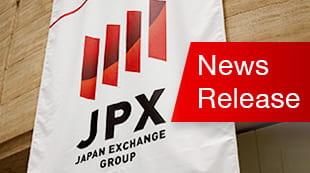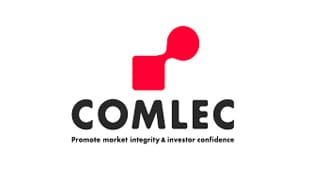Principles for Responding to Corporate Scandals
Background
Listed companies have relationships with a wide variety of stakeholders, including shareholders, customers, business partners, employees, and local communities. When a scandal occurs (a serious legal violation or other improper/inappropriate conduct, etc.) at a listed company, therefore, the effects ripple in many directions. Not only does the company suffer damage to its corporate value, but the impact may also affect the credibility of the entire capital market. Recognizing its position as a public company, every listed company thus needs to respond resolutely to any scandal or signs of a potential problem concerning its operations (or those of its group companies) by quickly conducting a thorough factual investigation into the matter, clearly identifying the root causes, and using its findings to implement measures for preventing the problem from recurring. Listed companies are under enormous pressure to exercise this "self-cleaning" process, which makes it possible to regain credibility from their stakeholders and recover corporate value.
However, not all companies address scandals with the proper sense of resolve and urgency. There are cases where companies fail to pinpoint the root causes of problems or implement sufficient recurrence-prevention measures, for example. In other cases, companies might not ensure that their investigative frameworks have an objective, neutral standpoint or disclose information in a prompt, accurate manner.
Given these conditions, Japan Exchange Regulation (JPX-R) has created a set of response- and conduct-related principles that listed companies are expected to follow when addressing scandals. The principles are intended to help listed companies facing problems restore their credibility quickly and recover their corporate value steadily.
In formulating the principles, JPX-R examined recent examples of scandals to serve as reference with a basic perspective common to the conventional approaches on how listed companies are to respond to scandals. Establishing a single, universal rule-based standard to apply in any conceivable situation would likely be a problematic process, considering that individual companies need to form their responses to specific scandals in light of their respective situations and the detailed nature of the problems. Still, listed companies stand to benefit from a predefined code of conduct that reflects the basic, common components of any response effort and thereby provides all listed companies with useful guidelines to use when the need arises.
Unlike laws, regulations, and stock exchange rules, however, the Principles for Responding to Corporate Scandals do not bind all listed companies to specific constraints. A failure to abide by the Principles alone will not constitute grounds for imposing adverse actions against a listed company, as long as the company has not committed a breach of the TSE Listing Regulations.
Principles for Responding to Corporate Scandals
Principles for Responding to Corporate Scandals -Recovering Corporate Value-
If a company recognizes a scandal or has concerns about a potential scandal pertaining to its corporate activities (or those of its group companies), the company needs to exercise a "self-cleaning" process by conducting a necessary and sufficient factual investigation into the matter and identify the root causes of the problem, and using its findings to implement measures for preventing the problem from recurring. In doing so, a listed company is expected to conduct itself and take action in accordance with the Principles so that it can quickly restore the credibility from its stakeholders and recover its corporate value.
Principle 1: Identifying the root causes of the scandal
In working to identify the root causes of a scandal, a company should first establish the necessary and sufficient investigative scope and then go beyond simply examining phenomena and listing causal relationships on a superficial level. A proper investigation entails looking closely at the deeper contextual background of the problem, finding hard facts, and delineating the fundamental causes at the heart of the scandal.
To do so, a company should strive to enable the necessary and sufficient investigation by creating an optimal investigative framework and establishing the proper investigative environment within the company structure. That process also requires the right leaders, such as Independent Directors/Auditors, to push the self-cleaning process forward.
Principle 2: Ensuring that a third-party committee (where necessary) has the necessary independence, neutrality, and expertise
In cases involving serious doubts about the effectiveness of a company's internal controls or the credibility of a company's management, cases where a company has suffered substantial damage to its corporate value, and cases with a particularly complex nature or considerable social impact, the company concerned can benefit from establishing a third-party investigative committee to ensure sufficient independence, neutrality and expertise. A company choosing to establish a third-party investigative committee should thus devote sufficient attention to the independence, neutrality, and expertise of the committee itself, including the selection process of its members.
However, companies should also avoid establishing third-party investigative committees as merely formal gestures with the aim of lending a simplistic, insufficient investigation a false air of independence and neutrality.
Principle 3: Formulating and swiftly implementing effective measures to prevent recurrence
To prevent a scandal from recurring, a company should formulate highly effective policies that directly address the root causes of the issue and implement them swiftly and steadily.
Instead of simply shuffling the company organization or revising the company rules, the company should strive to reflect the core intention of the recurrence-prevention measures specifically in everyday operations, apply the policies accordingly, and take steps to verify that the policies have taken root.
Principle 4: Disclosing information in a prompt, accurate manner
A company responding to a scandal should disclose the relevant information as necessary across the entire duration of the process promptly and appropriately, from when the company first recognizes the issue to when it implements its recurrence-prevention measures.
When disclosing information, the company should strive to ensure transparency explaining the background behind the scandal, the details of the scandal itself, and its own views on the scandal in a careful, meticulous manner.
DISCLAIMER
DISCLAIMER: This translation may be used for reference purposes only. This English version is not an official translation of the original Japanese version. Certain parts of the translation may have been edited to accommodate differences in writing style and expression between English and Japanese. In cases where any differences including, but not limited to, those differences above occur between the English version and the original Japanese version, the Japanese version shall prevail. This translation is subject to change without notice. Tokyo Stock Exchange, Inc., Japan Exchange Regulation, Japan Exchange Group, Inc., and/or their affiliates shall individually or jointly accept no responsibility or liability for damage or loss caused by any error, inaccuracy, misunderstanding, or changes with regard to this translation.














